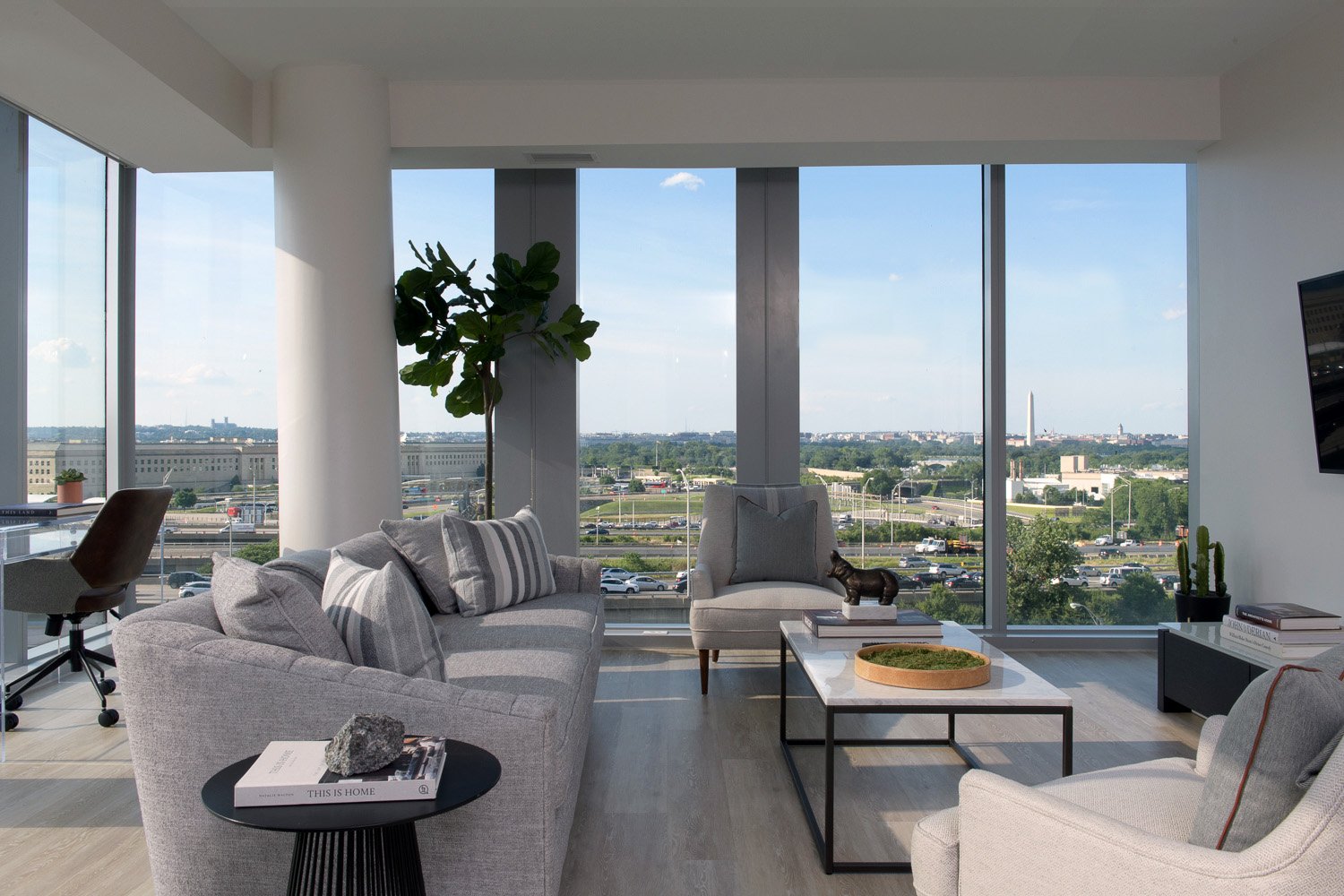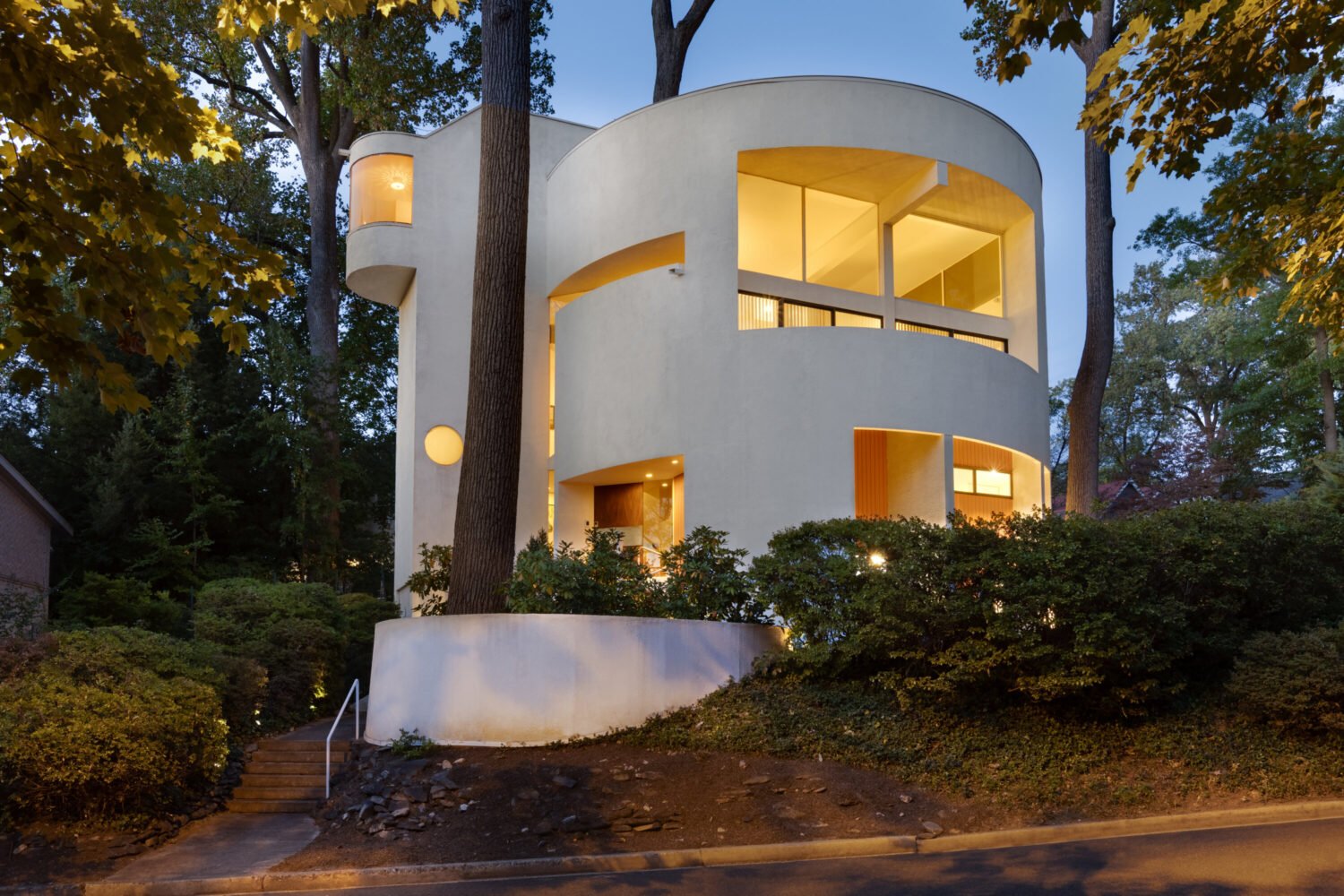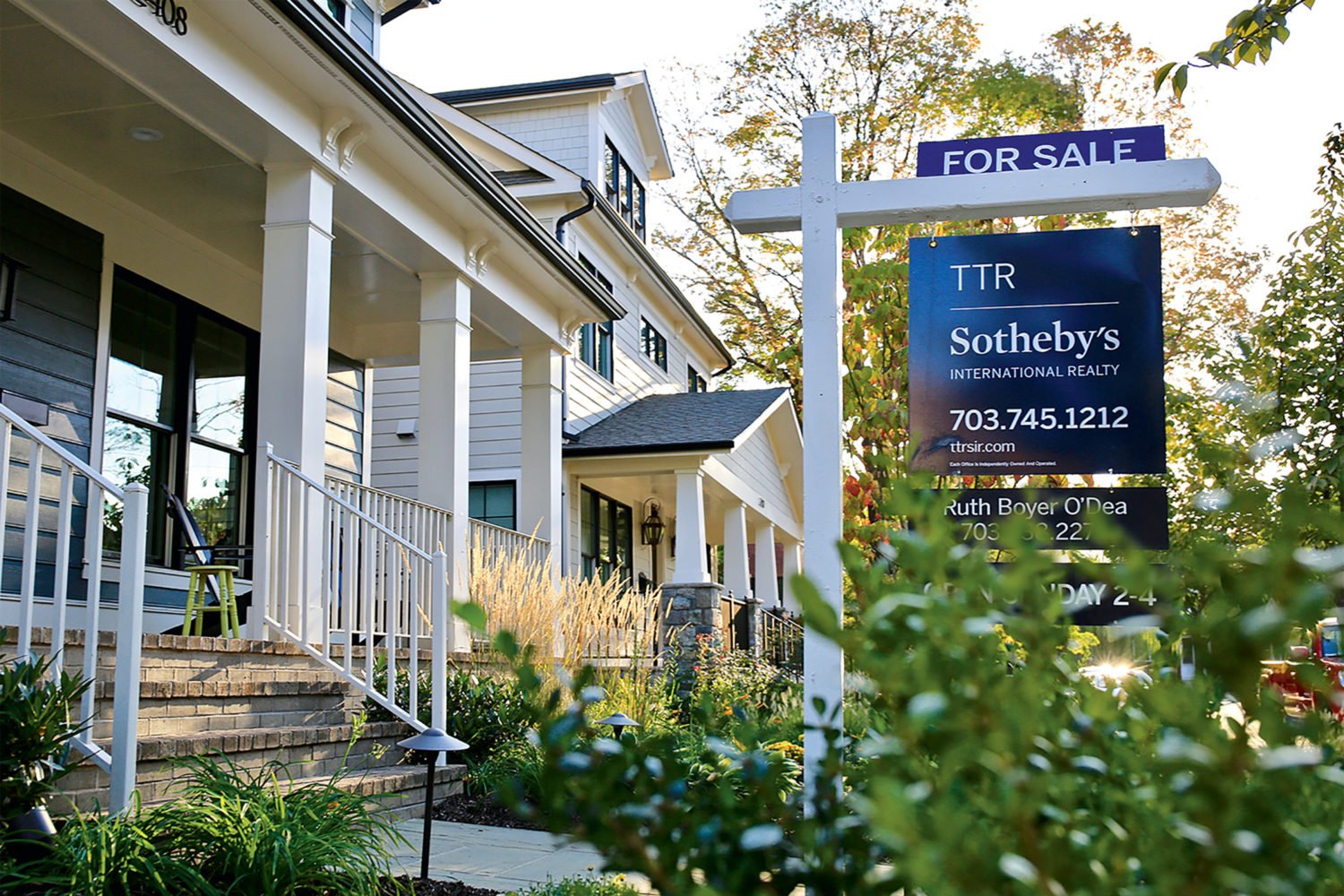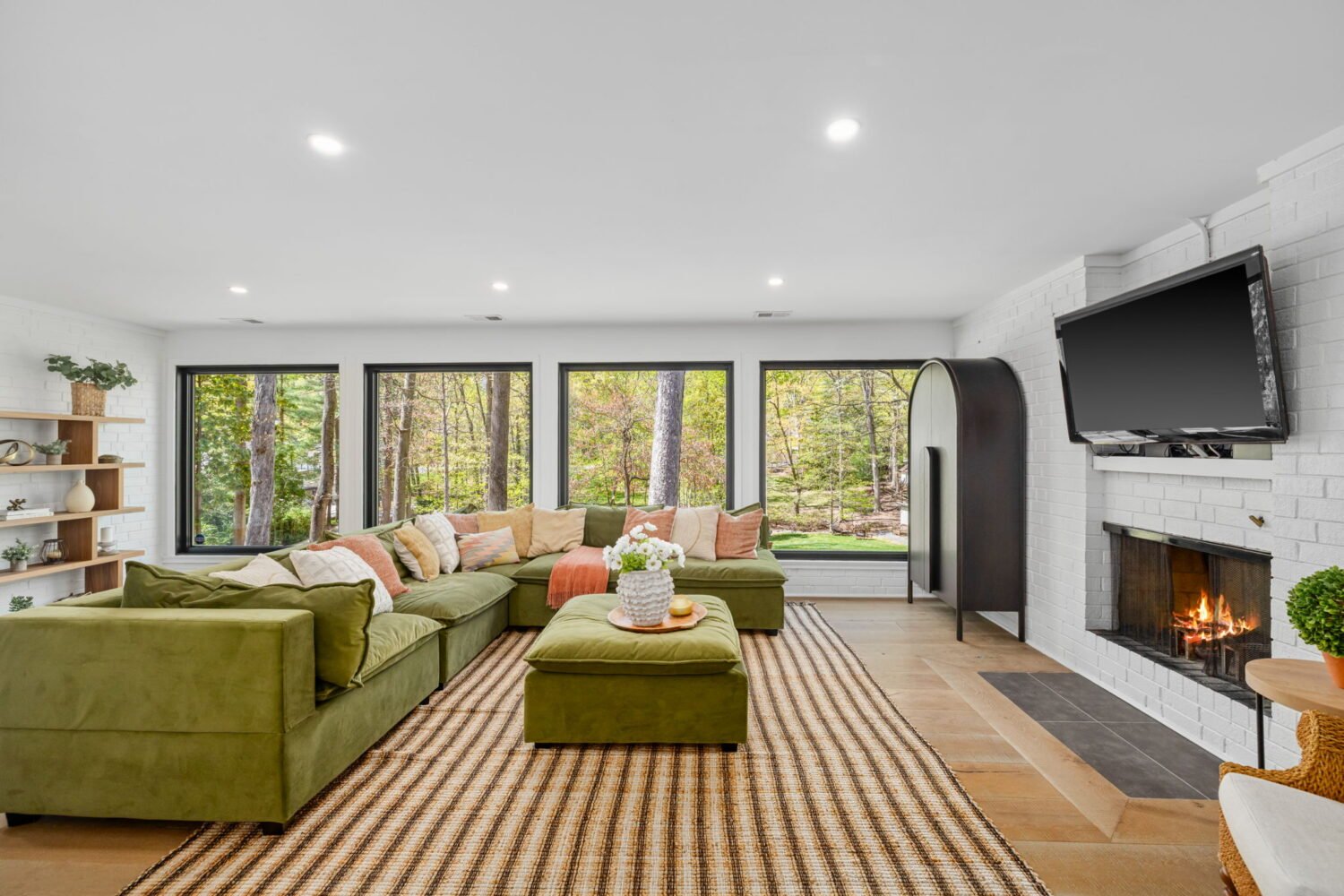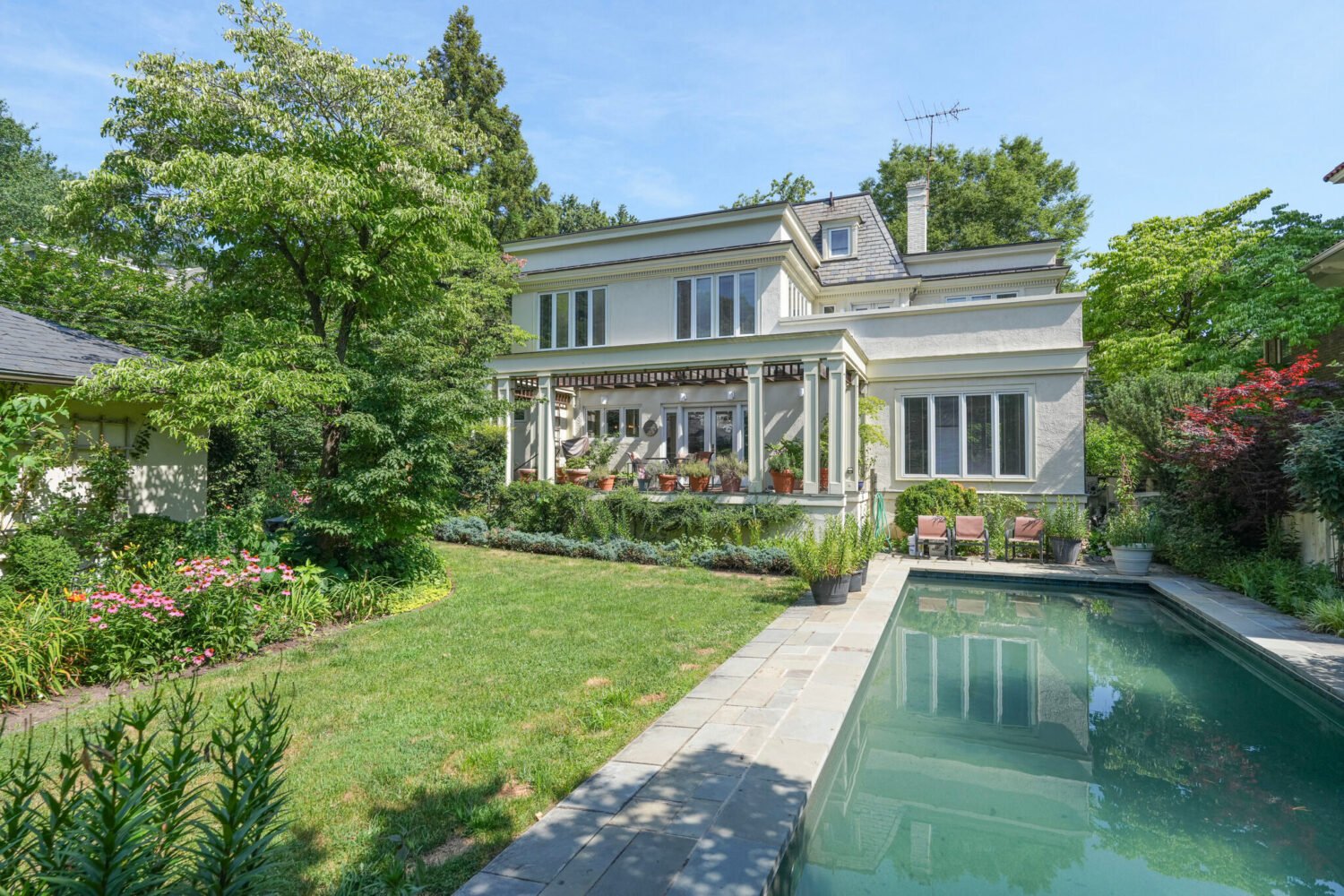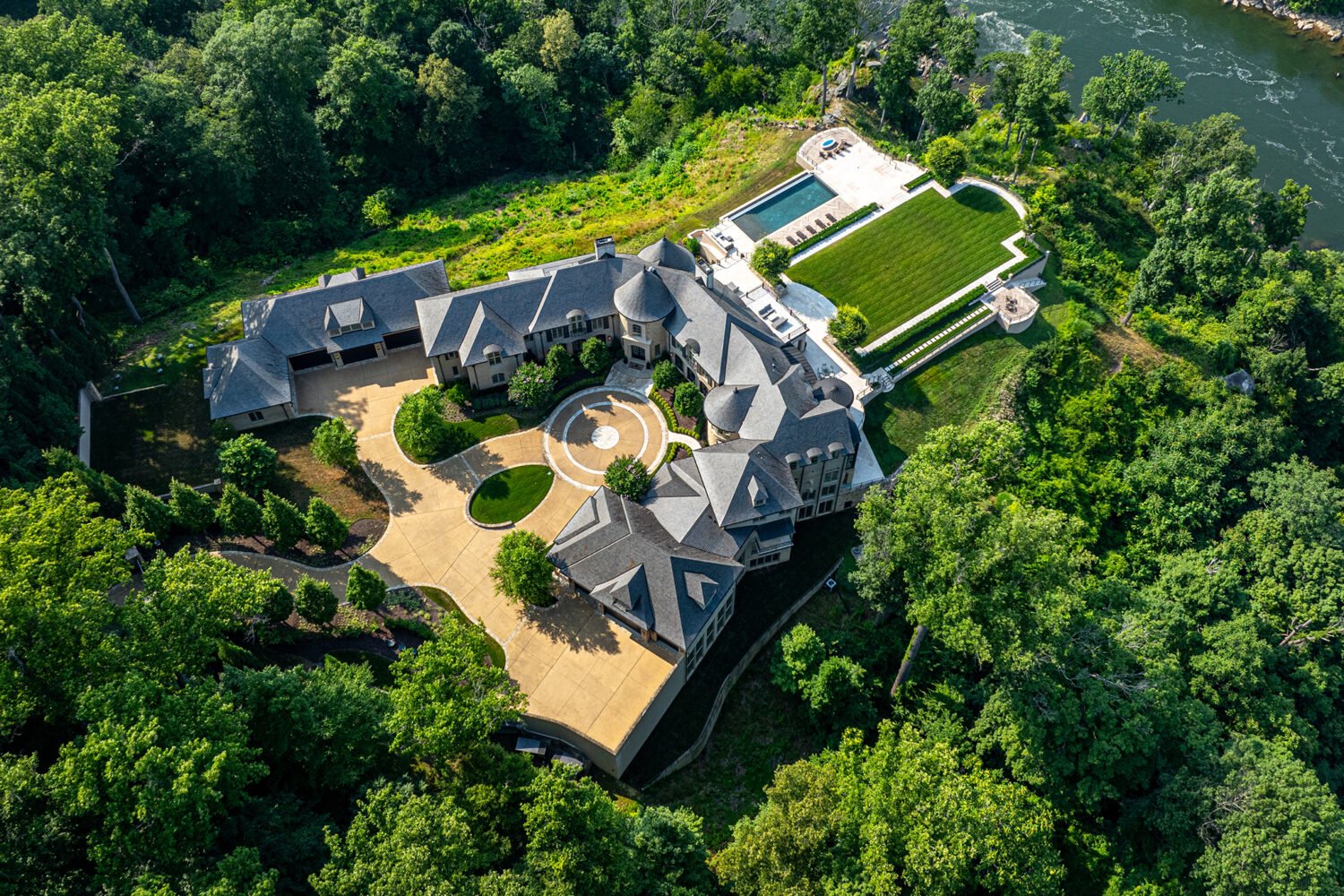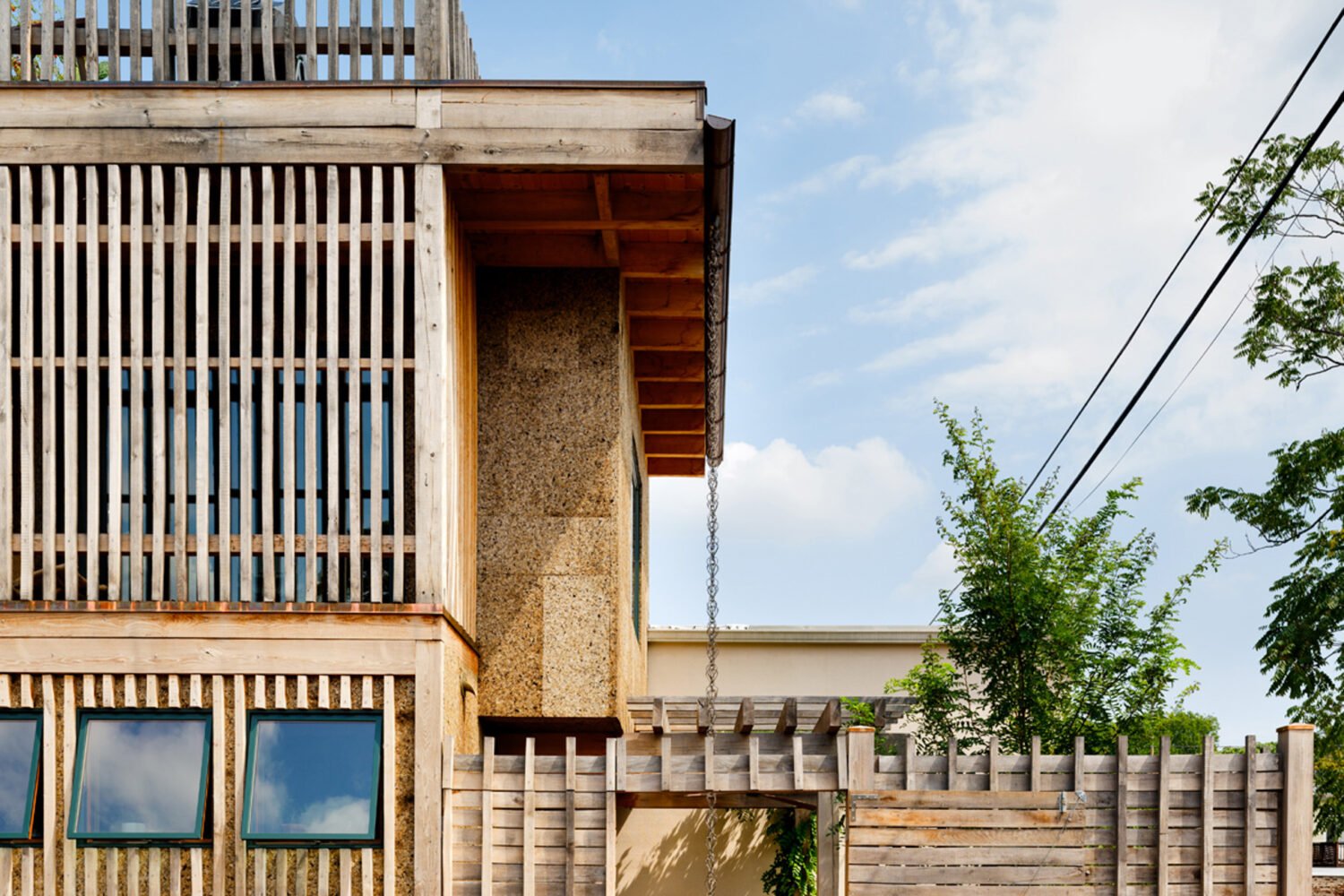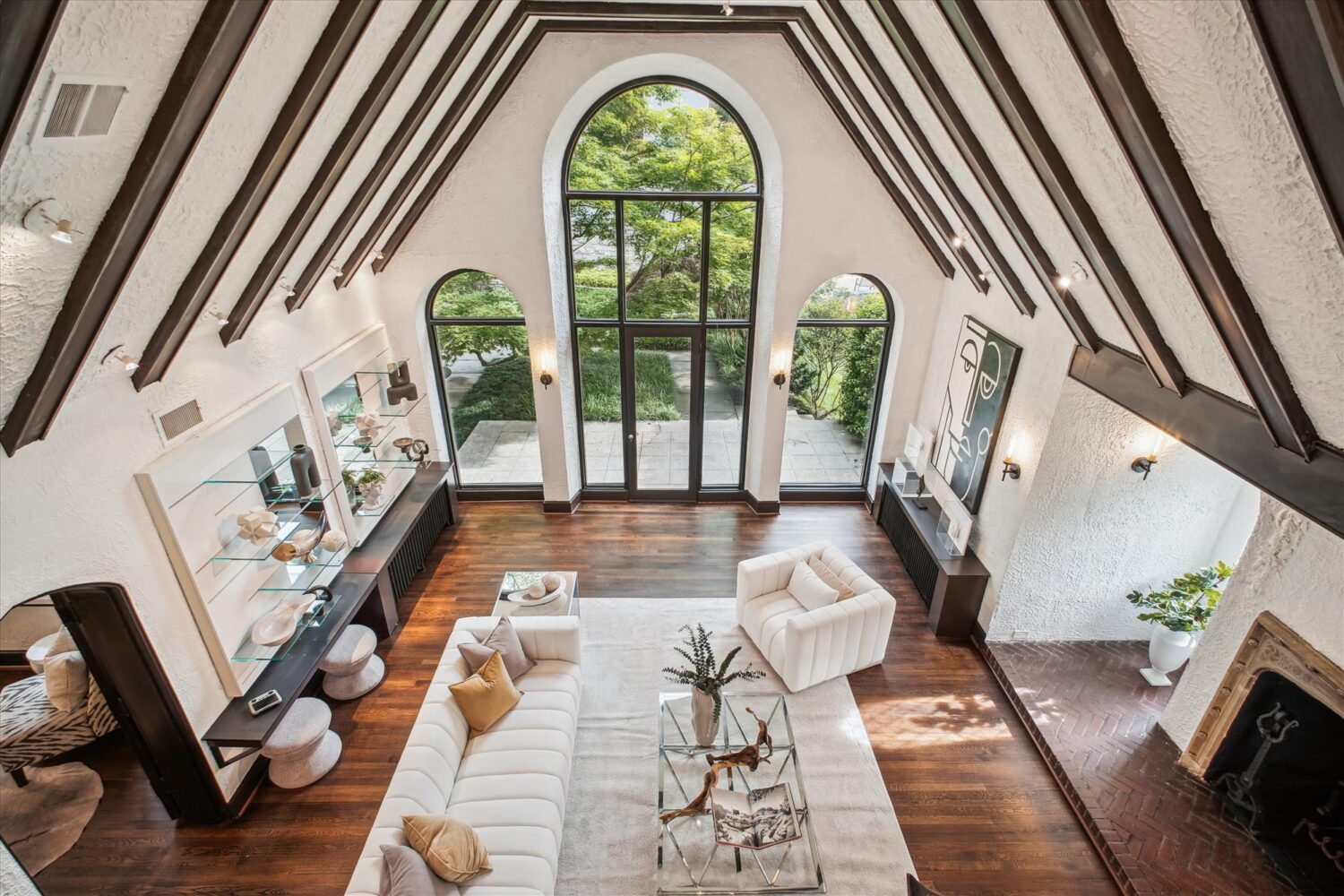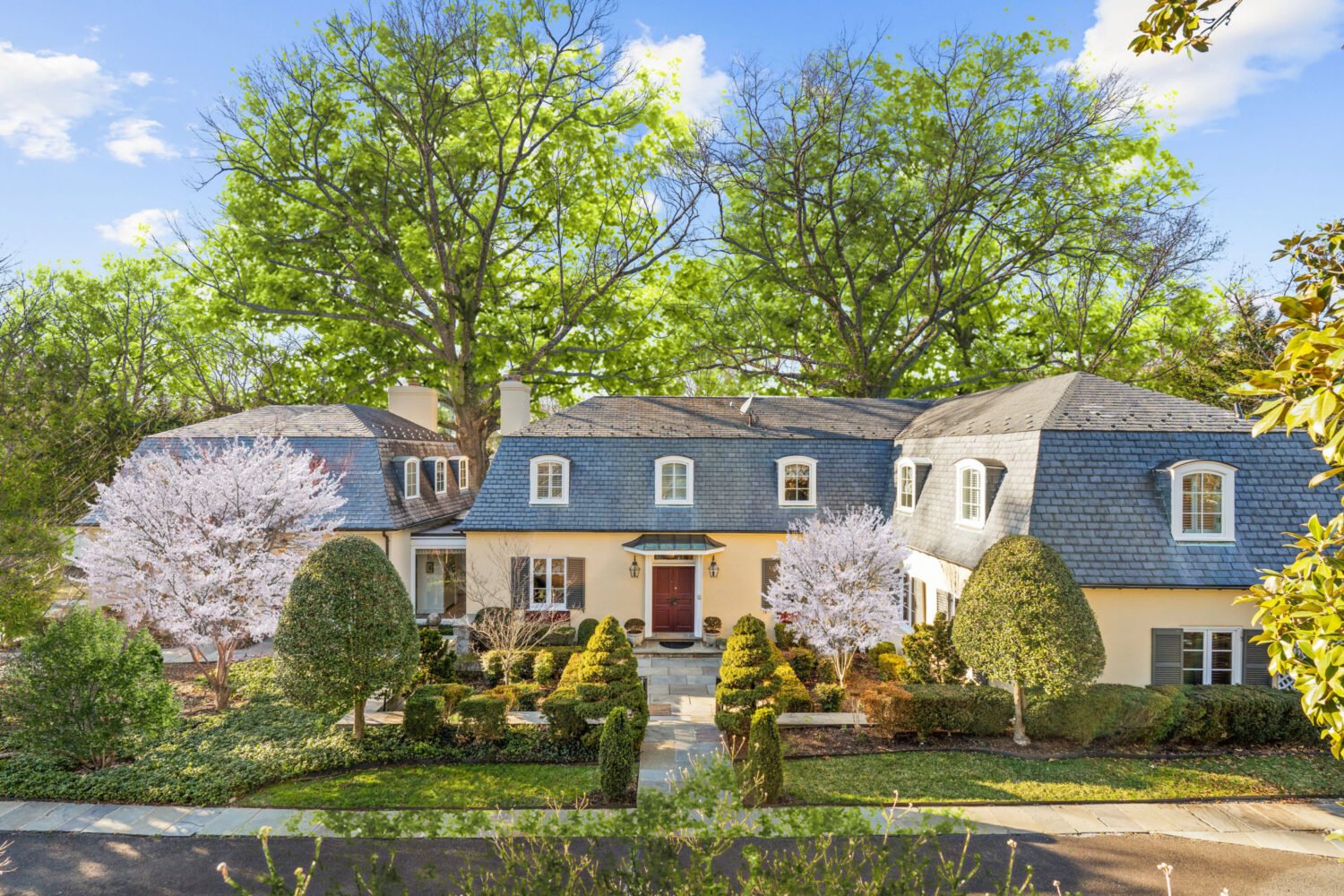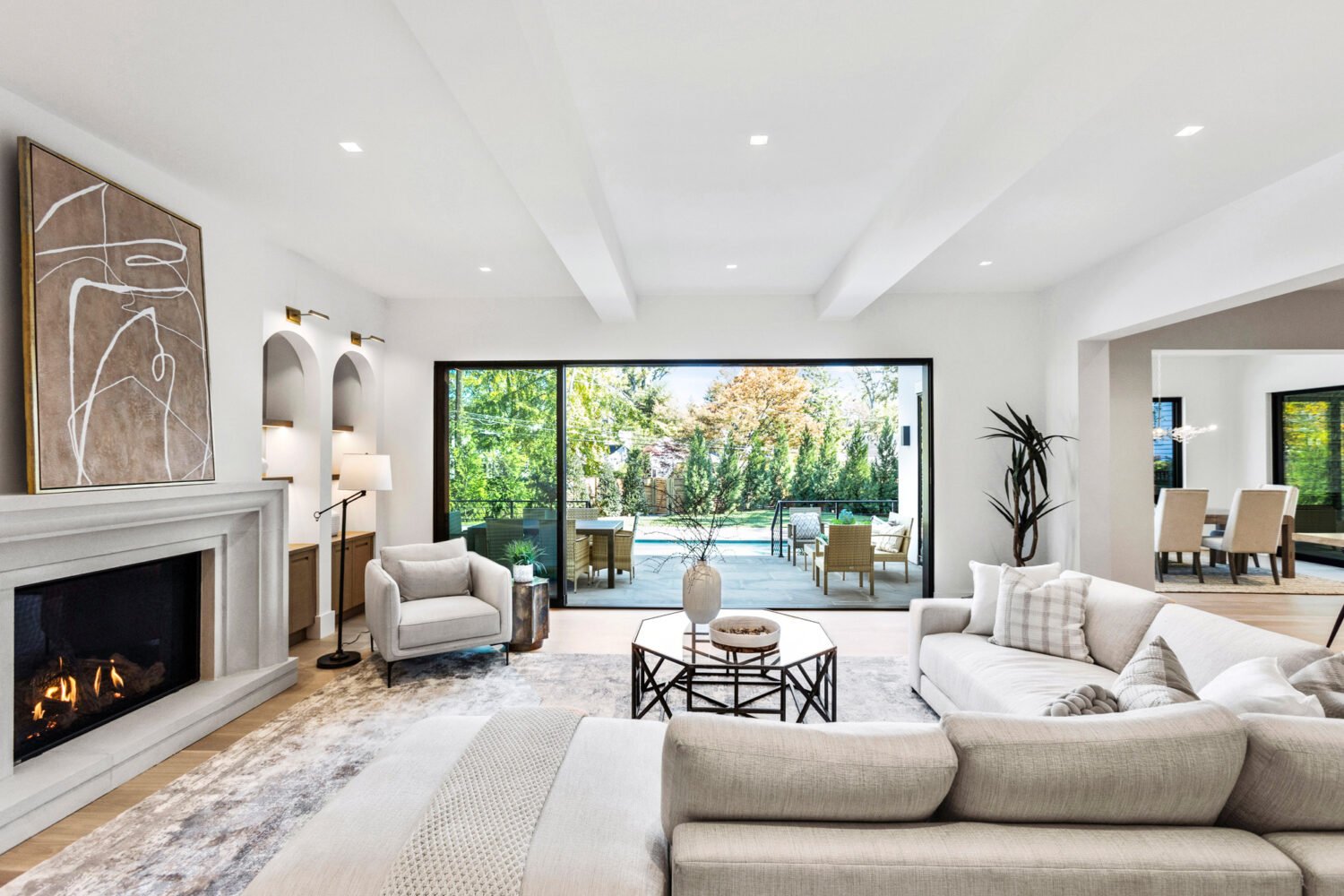The Washington region, much like other urban areas that attract a number of young professionals, has become something of a luxury-apartment petri dish. New buildings have proliferated like upmarket microorganisms in the swankiest science-fair project ever—seeking residents with the help of amenities ranging from rooftop dog runs to rows of Peloton bikes to weekly winetastings, all a quick elevator ride away from your apartment door.
But 2020 has thrown a wild variable into this real-estate marketing experiment: What happens when those wonderful urban-apartment-living perks you’re advertising—pretty much all of which involve doing cool things outside your home and in close proximity to your fellow luxe-building residents—suddenly go from lively to, um, deadly?
Well, you play up the benefits of staying inside your luxury apartment, of course.
The situation has obviously required some branding dexterity, says Lo Romero, vice president of marketing for LCOR, which developed the high-end Arlington building Altaire North: “The big shift in marketing for us was enforcing the fact that it’s a safe and comfortable place to live, it has ample square-footage, and it’s also a comfortable place to work from home. People wanted to know that they would have more space to do all the things now in their apartment that they never had to do before.”
As many buildings had to temporarily close their chic public spaces and sleek gyms during the stay-at-home orders, some also had to rethink how to show them off. “They were always a point of reference for us, particularly on social media, and when residents aren’t able to use them, we obviously don’t want to use them as fodder for lease-up,” says Benjamin Watt, marketing director for Crescent Communities, which co-developed the Navy Yard building Novel South Capitol, along with RCP Development.
So instead of talking about its pet spa or on-tap cold-brew in the clubroom, Novel South Capitol focused on touting outdoor spaces where residents may feel safer, says Watt, as well as the interior of the units where tenants would likely spend more time. Nine-foot ceilings, floor-to-ceiling windows, and natural light suddenly sound a lot sexier than a high-tech fitness center when you’re stuck at home, right?
This trend is emblematic of a larger, pandemic-induced one in the luxury-apartment world: a greater emphasis on services and other touches that can be provided to residents directly in their homes, cutting out unnecessary, and perhaps dangerous, interactions with neighbors in crowded areas. Even though many buildings are now operating amenity spaces at half capacity and through reservation systems, there’s still a quandary: If you feel safe enough to use the in-building yoga studio, will you even be able to grab a spot?
It’s why, for instance, the Kelvin, a building in Navy Yard, is now offering online fitness classes and a delivery service that brings packages right to residents’ doors. Likewise, Novel South Capitol provides room service from ABC Pony, Erik Bruner-Yang’s restaurant on the ground floor, and hosts cocktail classes and food-photography workshops via Zoom. Altaire North’s concierge service, Quintessentially—previously used for booking theater tickets or restaurant reservations—is coordinating services such as in-home barber visits, online tutoring, and one-on-one personal training.
On the home front, it’s possible that formerly unmentioned selling points such as good air circulation, never-before-lived-in units, touchless key systems, high-speed internet, and excellent cell service will be talked up more as people look for germ-free private spaces. “Bettering people’s in-home living is going to be really important,” says Mark Hannan, general manager of the Kelvin. “We can’t just assume that everybody’s going to be a 9-to-5er—leave in the morning, come home at night.”
So does this mean luxury buildings will start to resemble a Best Western, where people just lock their doors at night and keep to themselves? Eh, probably not. While, sure, there has been some general wariness about sharing spaces, residents overall appear eager to dip their toes back into the rooftop-pool water, according to managers. “People have been in their apartment for a long time,” says Josh White, a vice president at LCOR. “So I think everyone is eager to, for lack of a better term, just get out of their 800-square-foot space, stretch their legs a little bit, and see some new scenery.”
That said, with Covid-19 numbers rising, it’s anyone’s guess how the pandemic will play out for society, let alone the world of chichi digs. “I think we’re probably, at this point, halfway through to seeing what the long-term effects of Covid are going to be,” says White of the luxe-apartment market. “We’re all kind of waiting with bated breath to see how it shakes out.”
This article appeared in our September, 2020 issue.

